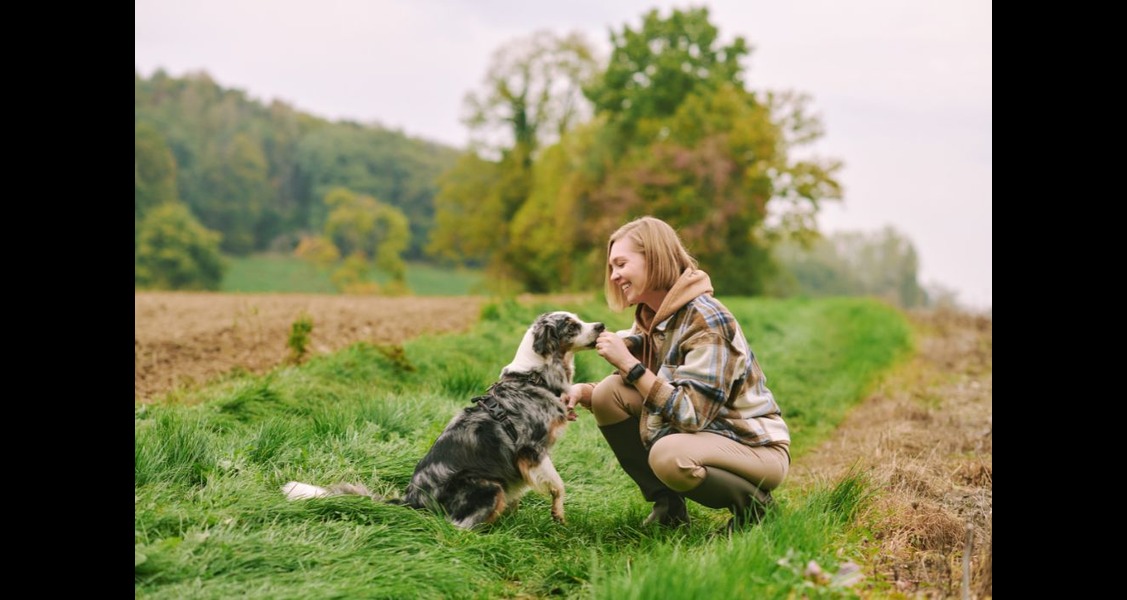Top 5 Health Considerations for Farm Dogs
Jul 24, 2025

Dogs that live and work on farms face a wider range of health challenges than most indoor pets. Long days outside, unpredictable terrain, and exposure to wildlife all put unique demands on their bodies.
Pet owners must plan ahead to support long-term comfort, strength, and resilience in dogs that spend much of their time outdoors. Knowing where to focus your attention makes a real difference in how well your dog thrives year-round.
Joint and Mobility Health on Tough Terrain
Farm life pushes joints in ways suburban or city environments rarely do. Steep fields, rough gravel, and daily jumping from trailers to pastures wear down ligaments and tendons over time. Some dogs adjust naturally, but signs like slow rising after naps or lagging during walks often indicate early-stage joint strain.
Preventive support helps dogs stay active without risking damage. Supplements with glucosamine and chondroitin strengthen cartilage before degeneration begins. Joint preservation is an important health consideration for farm dogs, and it’s something pet owners must adapt to each stage of life with exercise, rest, and dietary support.
Exposure to Parasites and Vector-Borne Disease
Pastures and barnyards attract pests like ticks, fleas, and mosquitoes, especially during warmer months. Standing water and livestock bedding increase the chance of parasite exposure tenfold compared to controlled indoor spaces. Without proper protection, your dog could face infections that spread quickly and damage internal organs or blood cells.
Heartworms, Lyme disease, and tapeworms often go undetected until symptoms become severe. Monthly parasite prevention, paired with regular vet screenings, provides the best line of defense. One the most important health considerations for farm dogs is long-term parasite control that actively blocks transmission cycles in high-risk zones.
Living in Extreme Temperatures
Temperature swings put stress on a dog’s ability to self-regulate. Intense heat during summers or freezing winds on winter nights can lead to dehydration, frostbite, or worse. Many dogs push through physical discomfort without visible complaint, which increases the risk of missed warning signs.
Shade, water access, and weather-appropriate shelter should always be non-negotiable. Purchasing breeds like the Boerboel ensures you select a farm dog that can tolerate outdoor temperature shifts while guarding livestock or patrolling open areas at night. Protective instincts and body structure make guardian breeds naturally suited for rural climates and longer outdoor exposure.
Footpad and Paw Injury Prevention
Sharp gravel, old fencing wire, and barn chemicals silently take a toll on paws. Many dogs limp for days before owners spot a cracked pad or small puncture near a nail bed. Even minor wounds can become infected quickly when dogs walk across manure, hay, or wet grass.
Check paws daily after chores, especially during snowmelt or after rainfall. Also keep a dog’s nails trimmed and regularly inspect between their toes for burrs, small rocks, or plant matter. Cleaning footpads with a warm cloth after each outing can prevent long-term discomfort and infection buildup.
Nutritional Support for Active Outdoor Dogs
Outdoor activity burns more calories than indoor lounging. Dogs that manage livestock, navigate rough terrain, and stay alert through changing conditions need more protein, fat, and hydration support. Skipping proper fuel often leads to low energy or joint flare-ups.
High-performance formulas made for working or sporting breeds give active farm dogs better recovery and stronger muscle tone. Meals timed before or after heavy activity reduce the chance of gastric bloat.
Rural living offers space and freedom—but also demands preparation. Make your care plan match your dog’s lifestyle by prioritizing veterinary insight, weather strategy, and breed-specific needs.


Disclaimer: healthcareforpets.com and its team of veterinarians and clinicians do not endorse any products, services, or recommended advice. All advice presented by our veterinarians, clinicians, tools, resources, etc is not meant to replace a regular physical exam and consultation with your primary veterinarian or other clinicians. We always encourage you to seek medical advice from your regular veterinarian.

